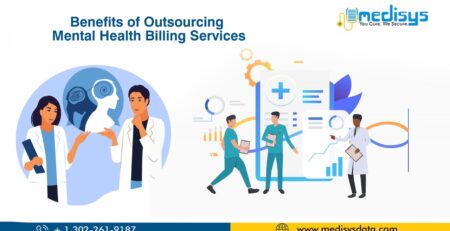According to recent research from public accounting, consulting, and technology firm Crowe, patient access and medical billing and collections are among the top healthcare revenue cycle risk areas for healthcare providers in 2019. Hence, early detection and preparation is the best way to alleviate these risks.
The researchers defined a risk area for hospitals, physician practices, and other healthcare organizations as anything that might impede the provider’s “ability to achieve its goals in critical areas such as patient care, regulatory compliance, operations, strategic growth, and financial performance.”
Let’s take a look at the new revenue cycle management (RCM) trends and requirements healthcare providers have to deal with in 2019:
MEDICAL BILLING AND CODING CONCERNS IDENTIFIED AS:
- Incomplete and inaccurate medical billing
- Increased claim denials
- Inadequate denials management
- Costly reworking of claims
- Lost reimbursement
THE BASIC ERRORS THAT CAN GET A MEDICAL CLAIM RETURNED ARE:
- Errors in information about the patient (Sex, name, DOB, insurance ID number, and other insurance-related information, etc.), provider (address, name, contact information, etc.), and insurance provider (policy number, address, etc.).
- Medical coding errors such as reporting the wrong ICD-10, CPT, and HCPCS codes, leaving out codes altogether, undercoding, upcoding, using wrong Place of Service (POS) codes, and wrong modifier use.
- Duplicate billing – submitting a claim for a procedure without checking whether that service has been paid for/reported.
- Sloppy documentation – Claims will be returned as inaccurate or incomplete if the documentation of a procedure or patient visit is incorrect, illegible, or incomplete documentation.
PRIOR AUTHORIZATION REQUIREMENTS:
- Prior authorization required for all planned and unplanned medical and behavioral inpatient admissions
- Non-emergent ground and air ambulance
- Ancillary Services (chiropractic and outpatient therapies) – PA required from the first visit (after initial evaluation)
PATIENT ACCESS:
The researchers recommend controls over patient scheduling, registration, and making admission processes rigorous to minimize the risk of billing and patient accounting issues, lost revenue, and poor patient and physician satisfaction. Patient access risks can also be mitigated by ensuring that information collected during the scheduling, preregistration, and registration processes are complete and accurate.
PATIENT FINANCIAL RESPONSIBILITY:
A patient financial responsibility or the amount of out-pocket costs that patient incur has increased considerably in recent years. The study recommends that, in 2019, healthcare providers should collect patient financial responsibility upfront.
CHARGE CAPTURE:
EHRs and other patient care subsystems are the basis for charge capture, interfacing with providers’ billing and coding systems to generate patient bills. The researchers stress that organizations must establish charges, code medical records, and bill claims in compliance with rules established by Medicare and other payers to ensure the accuracy and completeness of their charges.
Finally, the study found that another major risk area for provider organizations relates to managing their medical billing service provider. Partnering with an experienced medical billing and coding company like us is the answer to meeting most of these RCM challenges. A reliable company would be up to date with the latest codes and billing rules and help provider organizations submit clean claims for optimal reimbursement. We would also provide medical billing analyses and reports to help practitioners monitor their financial performance and improve on it.












